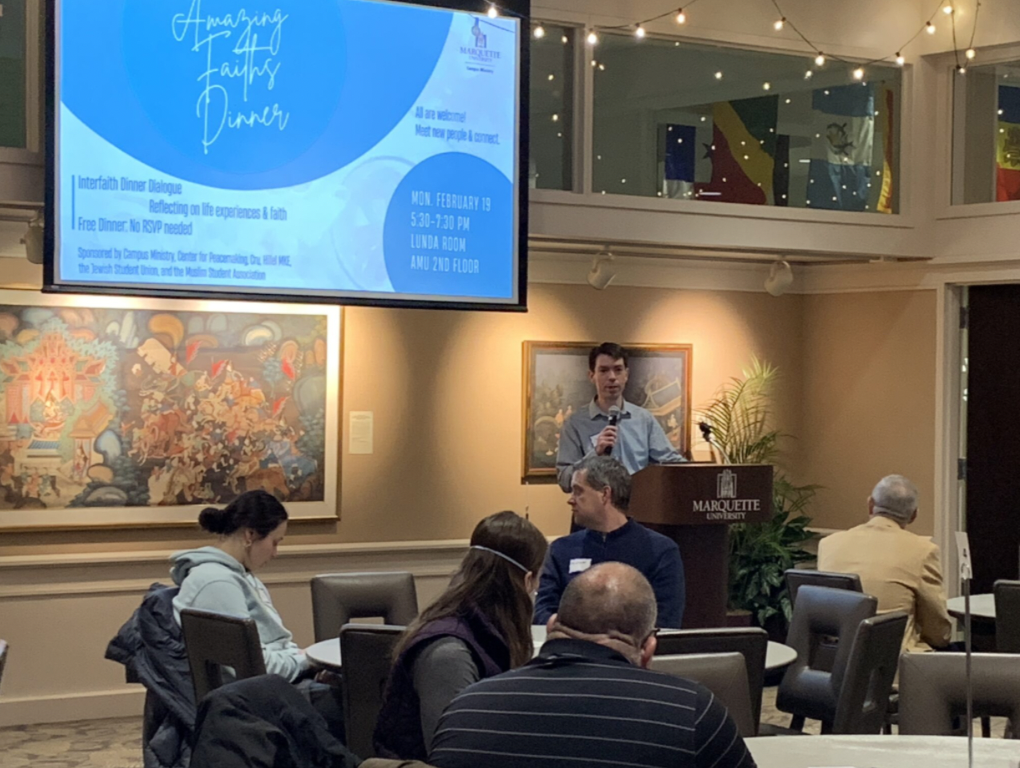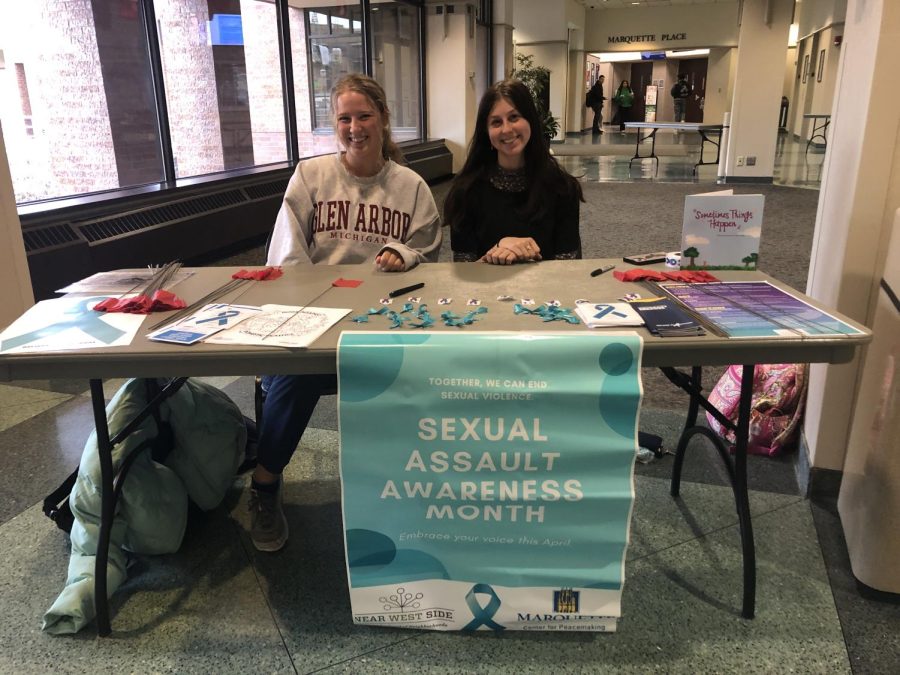Activists, students and educators assembled on Marquette’s campus this weekend for the seventh annual Peace and Justice Studies Association’s national peace convention.
Hosted by Marquette’s Center for Peacemaking and the Wisconsin Institute for Peace and Justice Studies, the convention featured about 60 concurrent presentations on topics like peace education, restorative justice and nonviolent communication. Coinciding with the 140th anniversary of the birth of pacifist Mohandas Gandhi, the convention’s presentations all aligned with this year’s theme, “The Power of Nonviolence,” according to Margaret Groarke, co-chair of PJSA.
Groake said about 350 people from all over the country registered for the event. The convention aimed to provide an opportunity for people to share ideas, network and learn about a variety of different nonviolence-related issues, she said.
“I think (all the presentations) are controversial,” Groarke said. “Everything we do challenges our perceptions of how we live together as people and how we live together as nations.”
Jacques du Plessis, an assistant professor at University of Wisconsin-Milwaukee and a panelist for the presentation “Models of Peace Education,” discussed the process of integrating moral and ethical values of peace into K-12 education.
To help students achieve a state of reflective knowing, doing and being, du Plessis said educators should adopt a system that rewards students for ethical behavior and provides them with feedback on their actions. Plessis said he believes this method of instilling nonviolent values in students is more effective than creating a rigid curriculum.
“I think it’s bigger than that,” du Plesiss said. “It’s not a little segmented class. It’s something that we are, something as an educator we should live and be.”
Rachel MacNair, director of the Institute for Integrated Social Analysis, was a panelist for “Food, Justice, and Nonviolence.” MacNair focused her presentation on the reasons behind many individuals’ choice to become a vegetarian or vegan and how they can find happiness in these seemingly restrictive eating practices.
“It’s not a matter of intense discipline because you get used to it, and it’s not a matter of incredible self-sacrifice because it can be quite joyful,” MacNair said.
Milo Miller, co-founder of Queer Zine Archive Project, spoke as a panelist for “Alternative Media as a Force for Social Activism.” Miller discussed his history creating and distributing zines, or small-circulation, magazine-like publications, as proponents of social change.
Miller said he has been creating zines focused around lesbian, gay, bisexual and transgender issues since the 1990s. One zine he has created is “Diseased Pariah News,” which he described as a “patently offensive publication of, by and for people with HIV disease.” Miller said these self-produced publications allow individuals to directly express their views without censorship, even if they’re unpopular.



